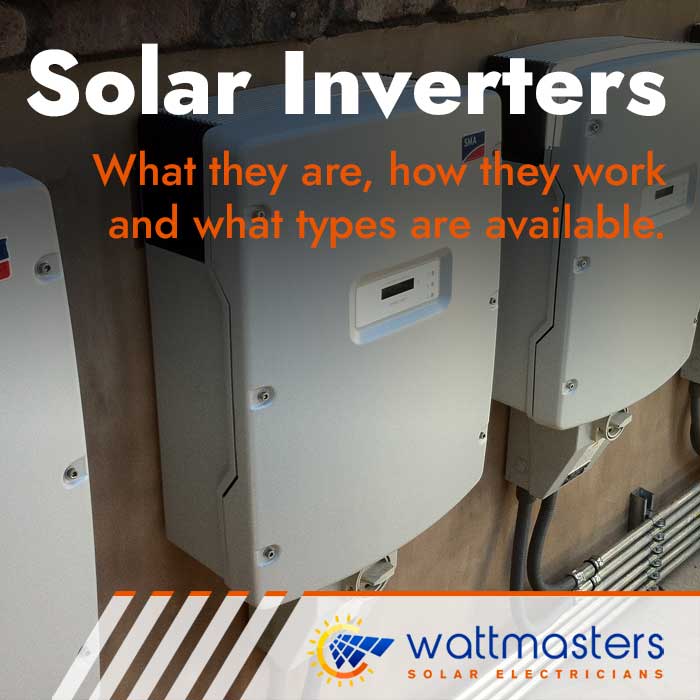What Is A Solar Inverter?
The demand for renewable energy has resulted in an increase in the popularity of solar energy. Sun, being a constant source of energy, is used to power your entire home with the help of solar panels. However, solar panels do only half of the job as a solar inverter is needed to convert the sun’s energy absorbed in the solar panels into usable electricity. This is why solar inverters play a major role in a solar panel system.
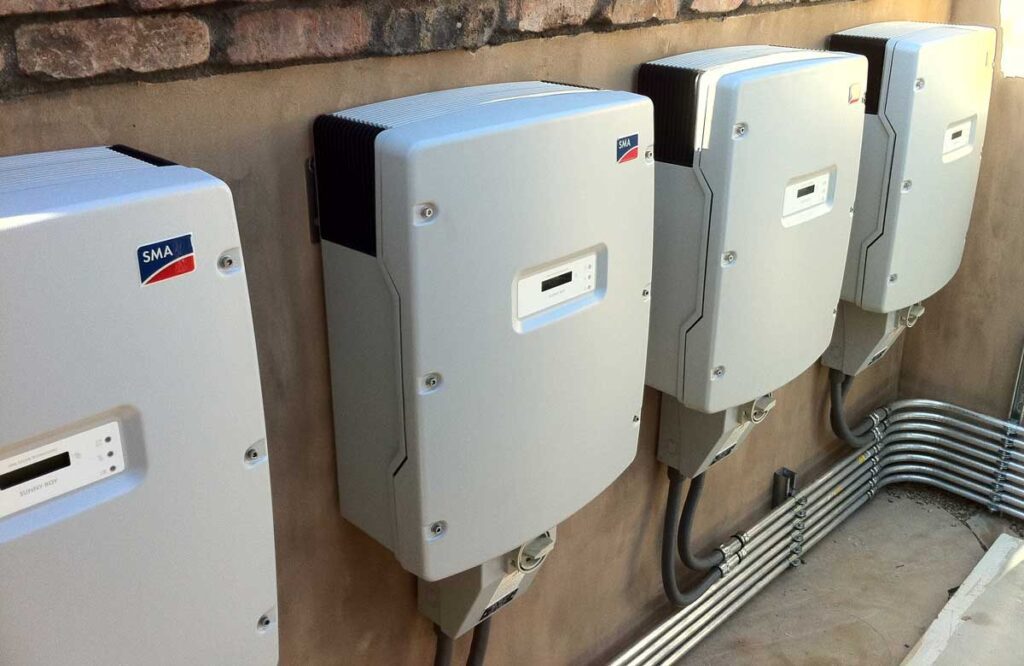
The image above shows SMA Solar inverters installed by Watt Masters
How Do Solar Inverters Work?
Solar inverters are one of the most crucial components in a solar energy system as they convert direct current electricity (DC) into alternate current electricity (AC). AC electricity is the standard in our homes and businesses.
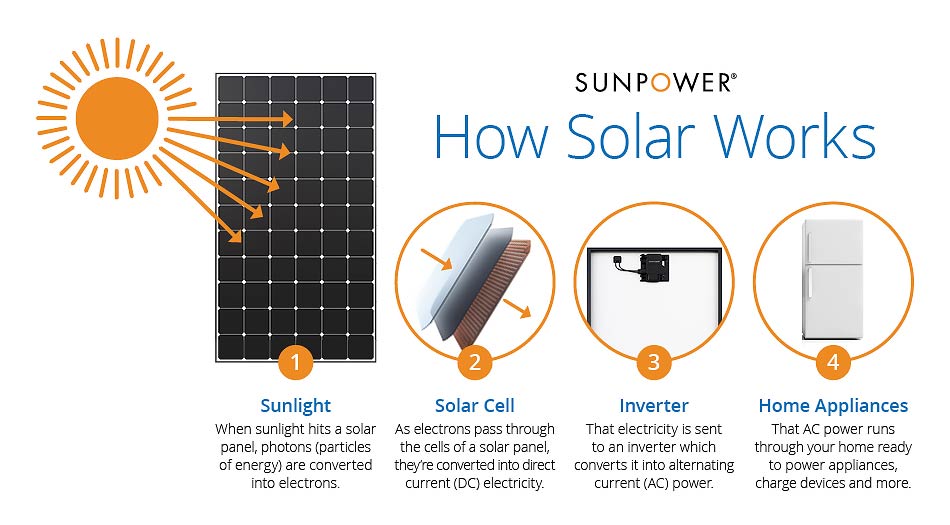
Sunlight is first absorbed by the solar panels, which are photovoltaic cells made with semiconductor layers of crystalline silicon. These semiconductor layers are a combination of negative and positive layers connected by a junction. When these layers absorb the sunlight, they transfer the energy from the sun to the photovoltaic cells. This energy runs around letting the electrons lose, which move between the negative and positive layers and generate direct current electricity.
From there, direct current electricity is either stored in a battery for backup or sent directly to a solar inverter for conversion to an alternate current to power your home, business, or even an RV. The solar inverter runs the direct current energy it receives from the solar panels via a transformer and generates an alternate current.
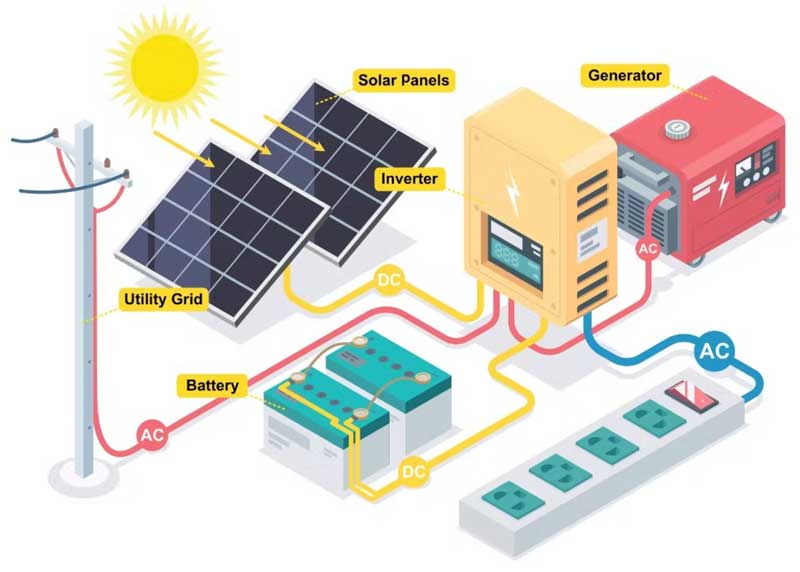
Apart from converting direct current into an alternate current, solar inverters can also continually keep track of the voltage of the solar system’s energy to discover the maximum power at which the solar modules can function. This can aid in identifying if the modules are degrading or if shading is occurring.
Solar inverters can also help to identify the amount of solar energy output. Newer models of smart solar inverters can even communicate smoothly with the grid.
Types of Solar Inverters
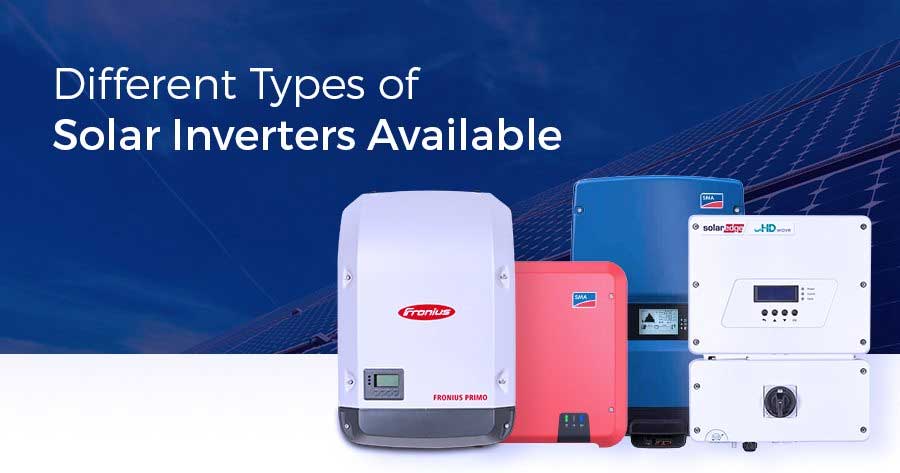
- String Inverters: String inverters are the most common type of solar inverters. Best for use at home, a single string of solar panels is connected to this inverter.
- Battery Inverters: A battery inverter is used when there is a battery with a solar energy system. This inverter converts battery power into AC electricity and sends it to your home’s main electrical panel when possible. Battery inverters can also be your best option if you want your battery to run through a different inverter separated from your solar panels.
- Micro Inverters: Micro inverters are very small inverters, almost the size of a book, which can optimize each solar panel individually. As a result, it can produce more energy, particularly on rainy or snowy days. Most people mount this type of inverter on the back of the solar panels.
- Central Inverters: Central inverters are very large and are used for buildings that require hundreds of kilowatts, or even megawatts of electricity. They are usually used for large industrial factories or commercial solar installations. A single central inverter is similar to the size of a large metal cabinet that can generate about 500kW of power.
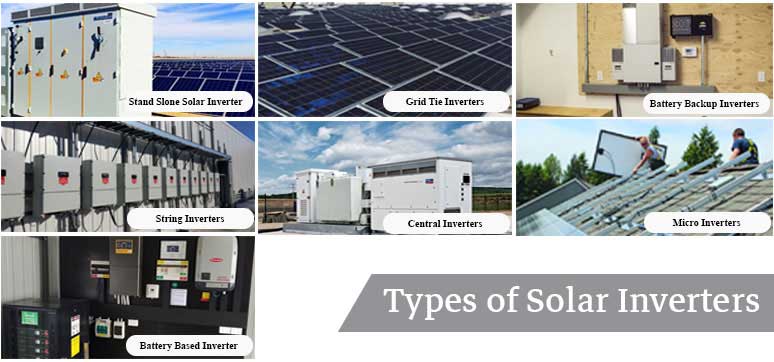
Conclusion:
Solar inverters are a crucial piece in your solar panel system to use the power generated from the sun absorbed by solar panels. They help turn the absorbed energy into usable energy making it easier for you to use solar energy to your benefit.
While there are many options to choose from when selecting the best inverter for your home or office, it is best to allow an experienced solar energy contractor to choose the inverter that best matches your solar panel system.
Watt Masters has experience with several types and sizes of solar panel systems, solar panels, and solar inverters. Contact us with any questions, we would be happy to help!

